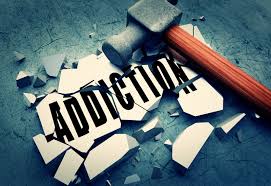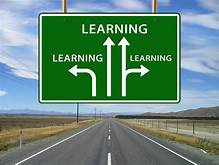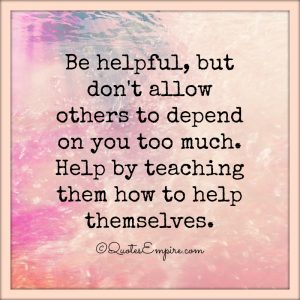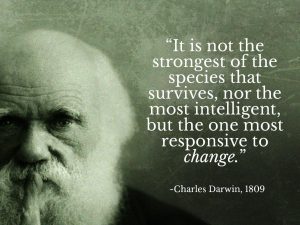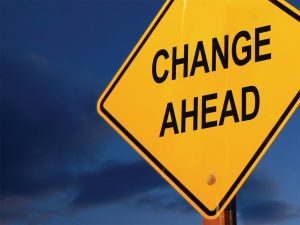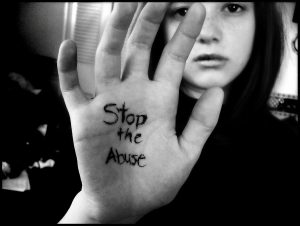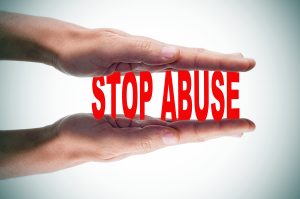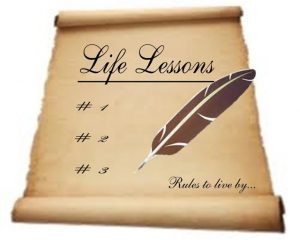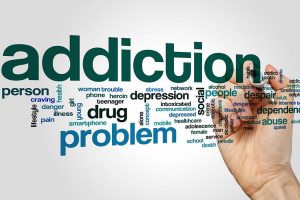 We all have our addictions; things in our lives we’d be better off without.
We all have our addictions; things in our lives we’d be better off without.
They include a broad range of types, some less obviously recognizable than others…
Being addicted is not just about presenting as a falling-down drunk that needs to be helped to bed. There are many subtle types of addiction which are comparably harmful.
Precise definitions of Addiction are as numerous as the authoritative sources that reference them.
For our purposes here let’s say (the Noun) Addiction is…
“The state of being controlled by something that is psychologically or physically harmful to your interests and difficult to quit.”
Many types of Addiction are now more commonly recognized as a form of disease.
The most obvious recognized Addictions (Drugs, Alcohol abuse) are treated by having the victim/sufferer break away from the situations and associations that expose them to their specific problem.
 So, Alcoholics stay away from bars, manage situations where drinking will occur and avoid relationships where alcohol is a central fixture. Much the same approach is employed by recovering drug abusers.
So, Alcoholics stay away from bars, manage situations where drinking will occur and avoid relationships where alcohol is a central fixture. Much the same approach is employed by recovering drug abusers.
Make no mistake, it is a tough proposition to adopt this new protocol and overcome established behaviors.
In Summary: The method is to limit exposure, by thoughtfully controlling and changing habits, relationships and behaviors associated with the previous undesirable lifestyle. You control the Addiction, not vice versa.
And by extension this same approach can be applied to other Addictions, as listed above.
For Example: Sometimes our Roles (socially, at work or in the home) are nothing but Addictions. Meaning we are often subject to repeated treatment and expectation that is a part of some imposed group dynamic which inflicts a specific role upon us. It can occur in all the aforementioned settings.
In Families, people have Roles: The Protector, Dictator, Judge, Leader, Peacemaker, Troublemaker, Clown, Abuser, Victim and so on.
Within such settings we personally often assume one such Role, whether it is in our best interests or not. It is typically a group-sanctioned role that is imposed upon us, but we sometimes unwittingly adopt our own preferred choice. (NOTE: It is only the materially unhealthy choice with which we are concerned here).
The same is true of Roles in the workplace and social gatherings. There we have our go-to experts, problem-solvers, fools, butts of jokes, unreliable contributors, procrastinators, the error-proneand so on.
Often these Roles are again imposed upon us and are unwanted. When group gatherings are a frequent occurrence (say, in the Workplace, Social Settings or Home), they can be constantly reinforced.
So, often we are forced to live with them. They may make us unhappy, perhaps even resentful. And they are sticky.
But isn’t this the same as an Addiction? It’s harmful to our interests and difficult to shake.
So, the methodology of limiting exposure, changing circumstance, environment and behaviors is again the way out of such situations.
We cannot always simply walk away or completely avoid gatherings and situations that cause us harm or make us unhappy.
But we can usually modify circumstance and our own reactions just enough to mitigate the damage(s).
In group (or family) settings we can often predict/ see where things are heading. We know what buttons will be pressed, by whom and when.
So, we can manage our own destinies and change things up.
We should minimize the situations that devolve this way. And when things take a wrong turn, know proactively (when possible) how to gracefully and painlessly extricate oneself.
You don’t have to run away; simply know when to modify your old behaviors and adopt an approach that works better for you without inflaming matters. With time and patience, it is possible to happily modify and perhaps even change your group-defined role.
Some groups may be receptive to discussing and working through such problems when they are diplomatically and constructively pointed out.
Others might even open for professional guidance.
Whatever your Affliction or Addiction, it can and should be addressed.
Remember, those things that wound us psychologically (or physically) can often proceed to more broadly affect our general well-being and health.
Further, understanding these principles (outlined above) empowers self-direction, enabling you to guide friends, colleagues and children to the right assistance that addressestheir related needs.
Take a close look at your own situation. Many Work, Social and Familial group dynamics can leave a lot to be desired. So, identify what hurts. Then consider your approach to mitigate the harm(s).
Ian R. Mackintosh is the author of Empower Your Inner Manager Twitter@ianrmackintosh.

